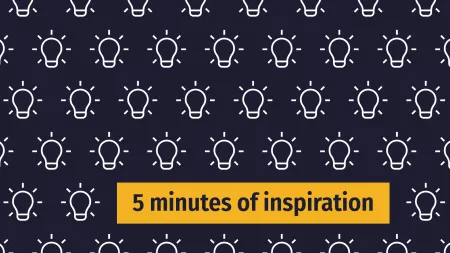“During these trying times, being a part of this savings group has really helped us cushion the adverse economic effects of the pandemic. From our social fund we buy food to share. We also use it to help support our children’s education and our hospital needs.” Fati Musa, Nigeria.
“People have realized the importance of saving all the money they can after going through this hardship. Our members are now working hard to support their savings to be better prepared for any future pandemics.” Kansiime Bonny, Uganda.
“We need access to knowledge, so that we can face any crisis without fear. We also need support to maintain economic activities because that can stabilize us in times of crisis.” Christine Sibomana, Burundi.
Women Respond in VSLAs is part of CARE’s Women Respond initiative, lifting up women’s voices about the impacts of crisis in their lives, the ways they lead, and what they need. Since September of 2020, women have told us that COVID-19’s impacts are getting worse, especially on livelihoods and food. People are reporting job losses and reduced business activities, all as a result of the pandemic. Women farmers reported losing much of their revenue as people are not able to purchase food items as before the pandemic.
At the same time, the savings groups are still women’s biggest source of resilience. Women in savings groups were about half as likely to report impacts in ALL areas (livelihoods, food, health, etc) as women who weren’t in savings groups. Women in these groups have shown remarkable leadership, resilience, and solidarity in crisis.
What have women in savings groups accomplished in COVID-19?
- 85% of groups are still meeting. In the face of multiple restrictions, VSLA groups have still found adapted ways to keep their groups running, such as meeting digitally or only having VSLA leaders meet. As a result, 85% of VSLA members are still meeting.
- 60% of groups are still saving, and 63% are still lending: 60% of VSLA groups are continuing their group savings and around 63% are providing loans to members, despite the financial and livelihood challenges they are facing.
- Groups are preventing COVID. VSLA members frequently volunteered their skills to provide information about COVID-19 and prevention measures within their communities. This includes sharing messaging, as well as developing businesses making masks and soap. Maryama in Niger says, “We go house to house to educate everyone in the village.”
- Groups support others. Despite the pandemic, respondents said their VSLAs are still their greatest source of support, offering solidarity and mutual aid. On average, 66% of groups are using their social funds – ordinarily reserved for social events and activities - to support their members financially and with buying food and hygiene materials.
- Women are getting active in decisions. Respondents in Burundi, Ethiopia, Mali, Nigeria and Uganda reported witnessing a high level of engagement by VSLAs, particularly women, in community mobilization in response to the pandemic. In cases like Ethiopia and Nigeria, respondents also reported that VSLAs, particularly women, played a huge part in supporting action to mitigate school dropout, early marriage and rape cases.
- Women are changing policy. Women are using the data from Women Respond to change their environments and get more support from the government. In Ethiopia, that means the government reached 18,571 people to share information about preventing child marriage in COVID-19. A local government official in Ethiopia says, “Women (in VSLAs) Respond data has helped our office to understand what is on the ground regarding the impact of COVID-19 among adolescent girls, and our ability to reach rural girls has increased. We now have a monthly plan to reach girls and women in each district. We are now actively working to prevent early marriage and encourage girls’ education, savings and overall well-being.”
How did it happen?
- Listen to women and build for their needs. The voices of 4,185 VSLA members in 6 countries are included in the Women (in VSLAs) Respond data. Those women and men have helped shape CARE’s response to COVID-19, the way we advocate for change, and the way we think about what is possible in data, crisis response, and local leadership.
- Stay light and agile. When we had to move to digital data collection, we learned that women will hang up after 10 questions. We can’t ask 11, and we can’t ask 12. So we have to focus on what women have time to share. Project teams used a range of options—from SMS surveys to in-person interviews to Whatsapp to collect data and understand women’s stories and priorities. Sometimes we had to switch methods to make sure we made it easy for women.
- Share data back to women. This data represents women and their experiences, so we made sure they got it back and could use it. In Ethiopia, girls used this to convince the local government to prevent child marriage and mobilize money and books to send girls back to school. In Mali, women used it to set up 92 GBV support groups to address increasing violence. In Burundi, women used it to partner with the local government to set up COVID-19 information campaigns. Rahil in Niger says, “Before this survey, we had no information on the pandemic, we weren’t paying attention to the bigger impact of COVID-19 on society and the economy. Seeing this data helped us to understand the bigger picture and think about the impact on our group.”
- Look at trends. The data—both qualitative and quantitative — over time helped us understand how COVID-19 evolved, and what impacts it has had on women and girls over time. As the months went on, more groups were able to get back to meeting and saving, even as the impacts on their livelihoods continued to climb.
Want to learn more?
Check out the final Women Respond in VSLAs report and the Women Respond dashboard (there are some great stories of change and how women lead on that website.
